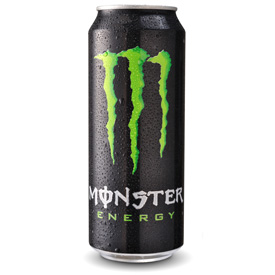Beastie Boys seek $2.4M from Monster Energy to cover legal fees in copyright case

Image from Chones / Shutterstock.com.
Lawyers for the hip-hop group Beastie Boys have asked a federal judge to make Monster Energy Company drink pay millions in legal fees in a copyright case, saying the defendant’s tactics before, during and after trial unnecessarily ran their legal fees beyond the $1.7 million jury award, the Associated Press reports.
The conduct of Monster Energy’s legal team was “objectively unreasonable” and “exceeded the bounds of zealous advocacy,” wrote the Beastie Boys’ lawyers from Sheppard Mullin Richter & Hampton in a motion (PDF) for fees filed Jan. 17.
Monster Energy, which sells a wide variety of energy drinks, had lifted multiple songs by the Beastie Boys for background in a four-minute video posted online promoting its “Ruckus in the Rockies” snowboard event, the court filing notes.
The company failed to engage in good-faith settlement negotiations, and deliberately sought to increase the plaintiffs’ legal costs, the filing alleges. For example, the filing says that Monster Energy attorneys disputed the Beastie Boys’ copyright ownership, about which there could be “no reasonable dispute,” which forced the plaintiffs to hire a musicologist to testify. Monster Energy then conceded the infringement at the final pre-trial conference.
At the trial, the Beastie Boys asked the Southern District of New York jury for $2 million, and got most of it, but that did not include any legal fees, which are now to be determined by the judge.
The memorandum written by the Sheppard Mullin attorneys pointed out that Monster Energy relied on its marketing director in Canada to monitor intellectual property issues, which Judge Paul A. Engelmayer ruled was “perforce unreasonable.” The company’s annual sales are in the billions of dollars; it has an approximately $120 million marketing budget.
The Beastie Boys’ lawyers say in a footnote that the beverage company is “proud of its guerilla marketing,” and that Monster Energy posted on its website, “Most companies spend their money on ad agencies, TV commercials, radio spots, and billboards to tell you how good their products are. At Monster, we choose none of the above.”
The Beastie Boys rose to prominence in the early 1980s, and helped move hip-hop into the mainstream. While they are successful, their lawyers say in the memorandum, their finances are “dwarfed” by those of Monster Energy. Financial disparity is a factor in determining legal fees.
Beastie Boy band members Adam “Ad-Rock” Horovitz and Michael “Mike D” Diamond testified during the trial and Horovitz remained in court during jury deliberations to await the verdict, the AP reports. Horovitz testified that the group would never license its music to endorse products.
The third member of the Beastie Boys, Adam “MCA” Yauch, died in 2012 from cancer. Yauch had requested in his will that their music never be used for commercial advertising purposes, according to Rolling Stone, and his bandmates have fought to honor that request. In 2013, there was a different copyright dispute with the toymaker GoldieBlox over use of a Beastie Boys song, after which GoldieBlox agreed to pull it from their advertising.
In December, Judge Engelmayer upheld the jury award and said the jury’s finding that Monster Energy acted in bad faith would be a factor in determining legal fees.
The group seeks $2.38 million in attorneys fees: $895,296 spent pre-trial; $1.28 million during trial; and $200,438 post-trial through December.



